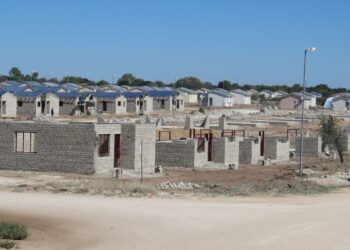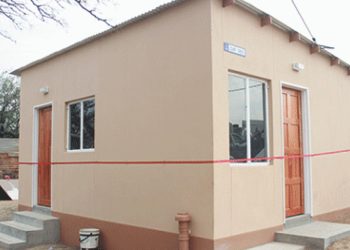
As we near the end of The Property Buyers Guide, host Justina Hamupembe—YourHomeGirl—sits down with Ms. Susan Fick, Head of Home Loans at FNB Namibia, to answer some of the most frequently asked questions from the series.
In this penultimate episode, Susan unpacks everything from home loan qualification to tax benefits and pre-approval processes, offering expert guidance to empower buyers with practical tools and clarity on their journey to homeownership.
Q1: Is a house really an asset?
Yes, despite the ongoing costs like interest, maintenance, and insurance, a home is generally considered an asset. Over time, it can appreciate in value, helping you build equity. FNB encourages clients to view property as a long-term investment that offers not just value, but also stability and potential tax benefits.
Q2: What tax benefits come with homeownership?
If your employer is part of a NAMRA-registered housing scheme, you may be eligible to deduct up to one-third of your home loan repayment from your taxable income.
Additionally, if you rent out part of your home or own an investment property, certain expenses like maintenance, repairs, insurance, and a portion of mortgage interest may be deductible. Always consult a tax advisor to understand how these apply to your specific situation.
Q3: What are the key requirements to qualify for a home loan?
FNB considers a number of factors when assessing home loan eligibility:
✅ Steady income
✅ Good credit score
✅ Manageable debt-to-income ratio
✅ Deposit amount and property value
FNB offers personalised support throughout the process to help you meet all the necessary requirements.
Q4: How does pre-approval work, and what does it cost?
Pre-approval is a free service at FNB that gives you a clear idea of how much you can borrow before you start house-hunting. It’s a valuable tool that allows buyers to shop with confidence and financial clarity. Simply reach out to fnbpreapprovals@fnbnamibia.com.na to get started.
Q5: Can I get a home loan if I’m self-employed?
Absolutely. FNB works with self-employed individuals and understands their unique circumstances. You’ll need to provide documentation showing stable income, such as tax returns or business financials. The bank will work with you to find a tailored loan solution that fits your situation.
Conclusion
That’s a wrap on Part 1 of our viewer Q&A. Justina returns next week with more answers to your most pressing property questions in Part 2, the final episode of the series. Don’t miss it!











